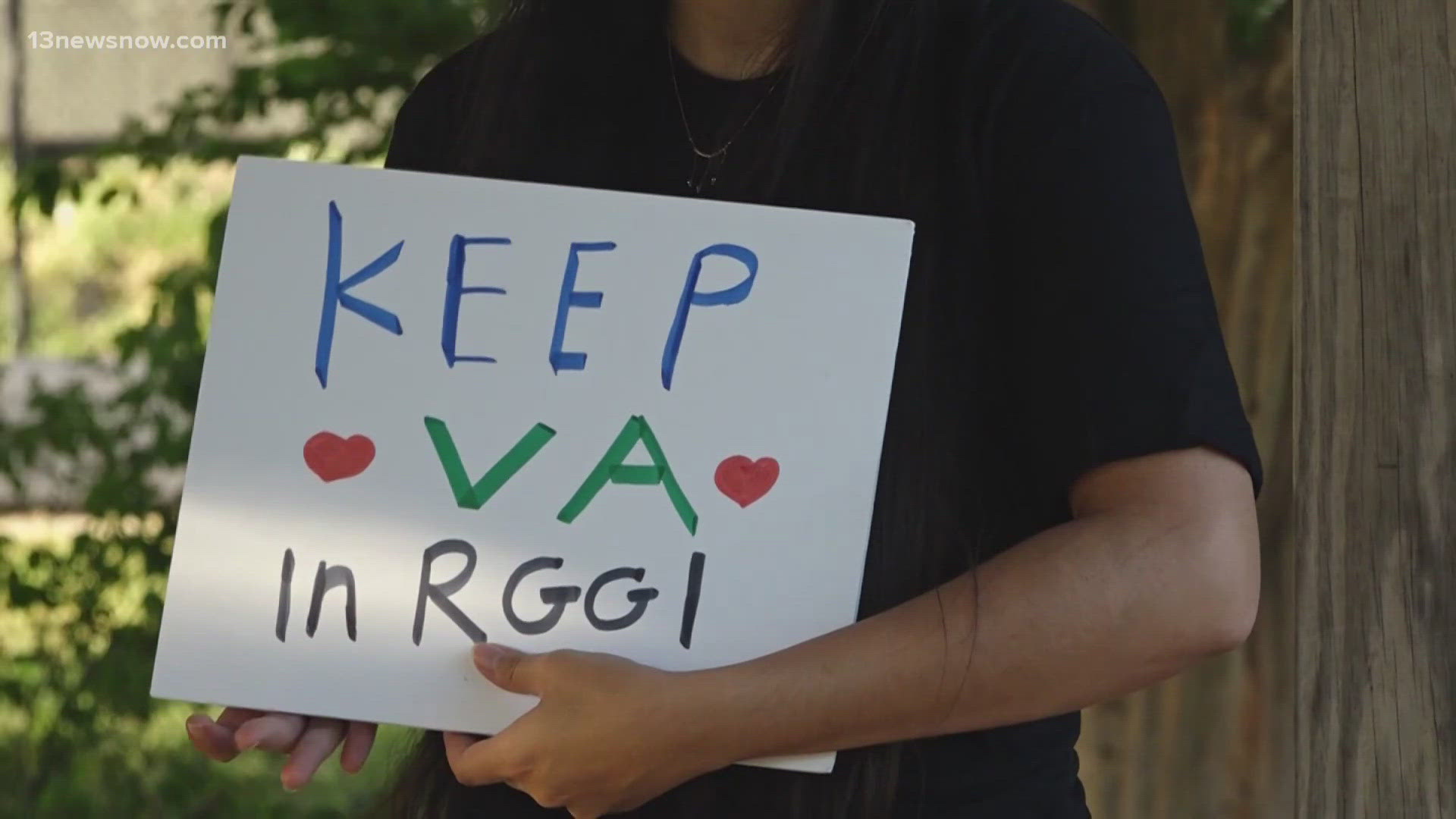RICHMOND, Va. — A court declared Gov. Glenn Youngkin's attempt to remove Virginia from the Regional Greenhouse Gas Initiative (RGGI) by executive order "unlawful."
The Twenty-Seventh Judicial Circuit of Virginia affirmed in a five-page opinion that the decision to withdraw Virginia from the RGGI can only be decided by the General Assembly. The judge said state officials did not have statutory authority to actually exit the RGGI.
In 2020, the General Assembly passed and signed the Clean Energy and Community Flood Preparedness Act, which included RGGI. Gov. Glenn Youngkin started the process to remove Virginia from the RGGI under his Executive Order 9. However, the court ruled against claiming it unlawful after environmental groups sued his administration last year.
“This is not only a win for every Virginian who has faced the devastating impact of severe flooding, but a win for all Virginians, their wallets, and our environment,” said Speaker Don Scott. “Programs funded by RGGI have helped Virginians cut household energy costs, helped protect communities from floodwaters, and have been critical in the fight to cut pollution and address climate change.
"Today’s decision saves hardworking Virginians money by ensuring the resources generated by RGGI are used to protect our communities. Governor Youngkin’s reckless attempt to undermine this critical program has been rightfully stopped."
Governor Glenn Youngkin’s Press Secretary Christian Martinez responded to the decision by saying "We respectfully disagree... and will pursue an appeal. Governor Youngkin remains committed to lowering the cost of living for Virginians by continuing to oppose the Regional Greenhouse Gas Initiative, which fails to effectively incentivize emission reductions in the Commonwealth. Instead, it functions as a regressive tax, hidden in utility bills, passed on to all Virginians."
In a process initiated by Youngkin's administration in 2022 and voted on by the Virginia Air Pollution Control Board in 2023, the withdrawal was done by repealing the regulation the state used to participate in the program, as opposed to a repeal passed by the Virginia General Assembly.
Gov. Youngkin has been a strong critic of RGGI, calling it a regressive tax on families and businesses across the Commonwealth, and that it does little to reduce pollution.
In September 2023, environmental groups pulled together and served the Youngkin administration with a lawsuit, claiming that the Air Pollution Control Board, the Virginia Department of Environmental Quality, and its director lack the authority to end the state’s participation in the program. In that same release, spokespeople for the groups touted the benefits of Virginia's participation in RGGI.
“If we pull out, we’re saying, ‘Hey, we don’t really care about climate change. We are not interested in climate solutions.’ And that’s a real problem," said Nate Benforado, a senior attorney at the Southern Environmental Law Center.
RELATED: Hampton Roads officials, and advocates gather to protest Virginia's pending RGGI withdrawal
Under the repeal, Virginia left RGGI on Dec. 31, 2023, which is the end of the program's control period that started on Jan. 1, 2021.
RGGI puts a cap on carbon dioxide emissions from power plants that will get stricter over time across 11 states: Connecticut, Delaware, Maine, Maryland, Massachusetts, New Hampshire, New Jersey, New York, Rhode Island, Vermont and Virginia.
According to the court, the Governor doesn't hold the authority to legislate on Virginia's participation in RGGI and similar programs.
“The court’s decision is a resounding victory for Virginia’s families,” said House Democratic Leader Charniele Herring. “I was proud to carry this bill in 2020 and since then the RGGI program has helped protect countless Virginians from recurrent flooding, lowered energy bills through low-income energy efficiency programs, and fortified our communities against extreme weather events."

